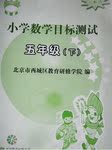题目内容
These days, most people in Britain and the US do not wear very formal(正式的)clothes. But sometimes it is important to wear the right thing.
Many British people don't think about clothes very much. They just like to be comfortable. When they go out to enjoy themselves, they can wear almost anything. At theatres, cinemas and concerts you can put on what you like--from elegant(优雅的)suits and dresses to jeans(牛仔裤)and sweaters. Anything goes, as long as you look clean and tidy.
But in Britain, as well as the US, men in offices usually wear suits and ties, and women wear dresses or skirts (not trousers). Doctors, lawyers and business people wear quite formal clothes. And in some hotels and restaurants men have to wear ties and women wear smart dresses.
In many ways, American people are more relaxed than British people, but they are more careful with their clothes. At home, or on holiday, most Americans wear informal or sporty(轻便的)clothes. But when they go out in the evening, they like to look elegant. In good hotels and restaurants, men have to wear jackets and ties, and woman wear pretty clothes and smart hairstyles(发型).
It is difficult to say exactly what people wear in Britain and the US, because everyone is different. If you are not sure what to wear, watch what other people do and then do the same. You'll feel more relaxed if you don't look too different from everyone else.
(1) Many British people wear freely when they ________.
[ ]
|
A.attend meetings |
B.attend lectures |
|
C.spend their spare time |
D.meet their friends |
(2) Who of the following people don't usually wear suits and ties?
[ ]
|
A.Lawyers. |
B.Doctors. |
|
C.Drivers. |
D.Secretaries. |
(3) If you visit an American friend at his or hers in the evening, you may find that your friend wears ________.
[ ]
|
A.formal clothes |
B.informal clothes |
|
C.pretty clothes |
D.dirty clothes |
(4) If you are in a foreign country, the writer suggests you to wear ________.
[ ]
|
A.the same clothes as the people there wear |
|
C.your native clothes |
|
B.strange clothes |
|
D.pretty formal clothes |
解析:
|
(1) 这是一道推断题。纵观全文,作者讲述了英国人和美国人在正式和非正式场合的穿着打扮,文章中谈到英美人在闲暇时间的穿着是非常随便的,因此选C。(2) 文中谈了lawyers, doctors和secretaries在上班时经常穿套装打领带,而文中未提到司机的穿着。故选C。(3) 由文章第四段中“At home, or on holiday, most Americans wear informal or sporty clothes.”可知答案为B。(4) 由文章最后一段“If you are not sure what to wear, watch what other people do and then do the same.”可知,正确答案是A。 |

 天天向上一本好卷系列答案
天天向上一本好卷系列答案 小学生10分钟应用题系列答案
小学生10分钟应用题系列答案 目标测试系列答案
目标测试系列答案
| |||||||||||||||||||||||||||||||||||||||||||||||||||||||||||||||||||||||||||||||||||||||||||||||||||||||||||||||||||||||||||||||||||||||||||||||||||||||||||||||||||||||||||||||||||||||||||||||||||||||||||||||||||||||||||||||||||||||||||||||||||||||||||||||||||||||||||||||||||||||||||
| |||||||||||||||||||||||||||||||||||||||||||||||||||||||||||